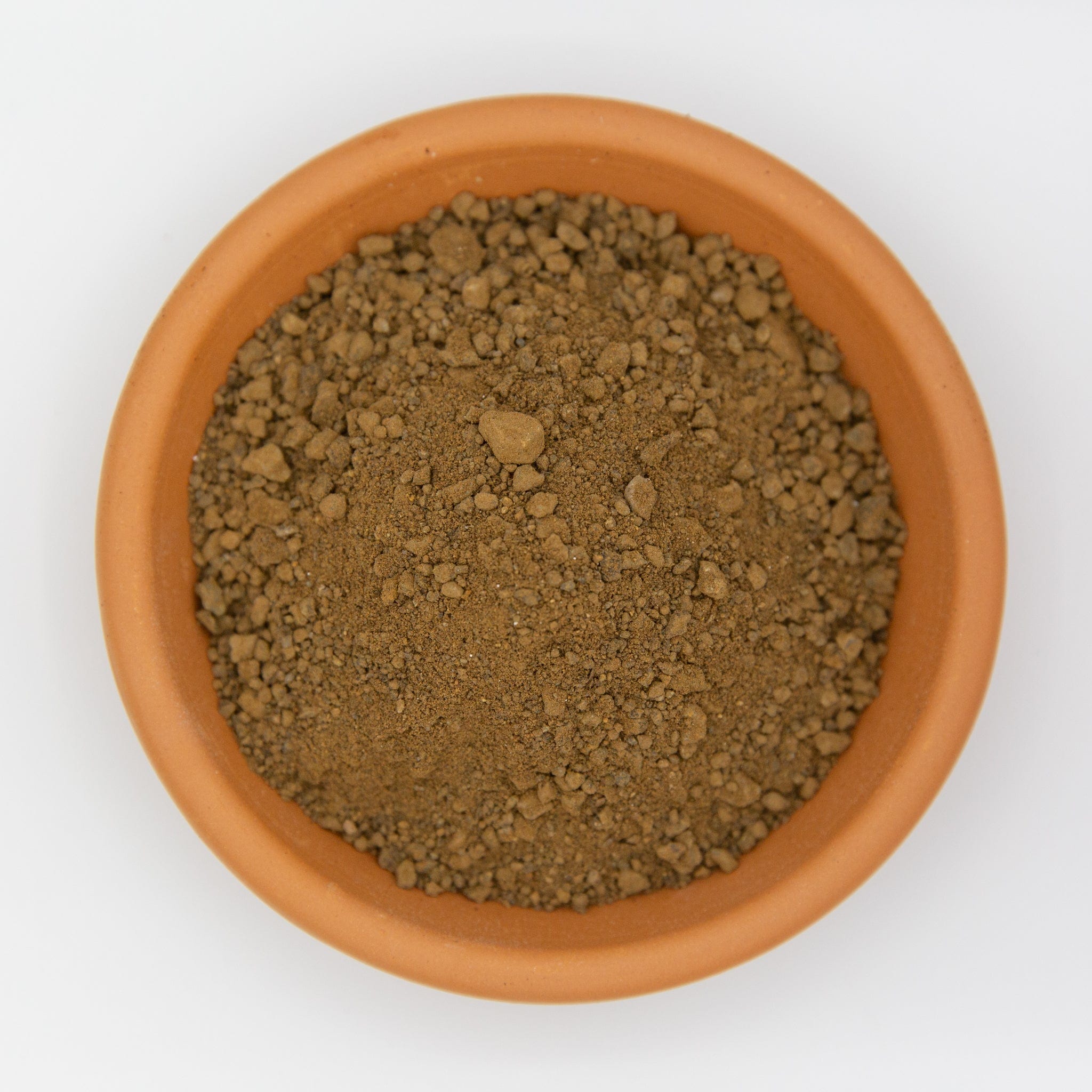Palagonite is a basalt rock dust mined in Australia, prized for its ability to uncompact soils, improve water holding capacity and feed beneficial soil microbes. It is made from a form of volcanic ash called palagonite tuff.
Because of its unique ability to provide cation-exchange capacity, palagonite will also stop nutrients leaching from your soil. Because of this we recommended to use palagonite mixed with a quality compost and then top dressed onto your soil or mixed with your compost pile. This won’t be necessary in soils already rich in organic matter.
Use at 50-150g per square meter.
Silicon 22.30%
Aluminium 7.70%
Iron 10.10%
Manganese 0.23%
Magnesium 3.30%
Calcium 5.10%
Sodium 2.36%
Phosphorus 0.24%
|
Potassium 0.77%
Total Carbon 0.03%
Total Nitrogen 0.03%
Cobalt 60.0 ppm
Copper 40.0 ppm
Nickel 90.0 ppm
ZinC 170 ppm
Molybdenum 1.0-3.0 ppm
|
Selenium 0.3-0.8 ppm
Chloride 62 ppm est
Sulphur 4.4 ppm
Boron 0.06 ppm
Paramagnetism 600-1300c/g/s
Water holding Capacity >65%
pH 8-8.5
CEC 35meq/100g
|
Other advantages:
- Numerous vital minerals are abundant in it, including as calcium, magnesium, potassium, and a number of trace minerals.
- Palagonite increases soil health and fertility by incorporating necessary nutrients and encouraging the development of advantageous microbes.
- It can be utilized to increase plant output and general health.
- It is commonly used to make nutrient-deficient and worn out soils more fertile.




